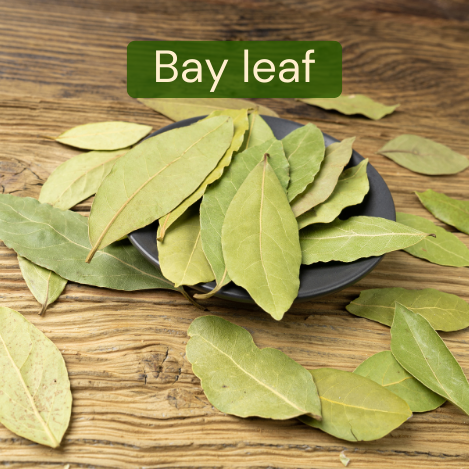Bay Leaves:
Bay leaves are crucial ingredients for soups and biriyani, but have never thought about their health benefits. We frequently come across certain classics with flavors like basil, rosemary, ela, and thyme in the world of culinary herbs and spices. However, there is an unsung hero known just as “Bay Leaf” who can transform ordinary dishes into extraordinary ones by adding an enticing aroma. This remarkable herb plays a crucial role in culinary traditions and even offers a range of health benefits, as per Ayurveda.
It is scientifically known as Laurus nobilis and commonly known as bay laurel (or sweet bay), are indigenous to the Mediterranean region. Due to its healing qualities, it has been utilized in Ayurvedic medicine for ages. Botanically, bay leaves come from the Laurus nobilis tree, an evergreen tree in warm and subtropical climes.
Culinary uses of bay leaves:
These leaves may appear as dull, but their contribution to culinary creations is incredible. They provide a rich flavor and aroma to the dishes. Here are some of the culinary benefits of bay leaves:
- Aromatics in Soups and Stews: These leaves are the main ingredients in hearty soups, casseroles, stews, and dishes. When these leaves are cooked in liquid, they release their essential oils, infusing the dish with a subtle, woodsy, earthy aroma with a touch of sweetness.
- Flavorful Rice: Adding a bay leaf to rice dishes can elevate the ordinary into something special. The leaves add a delicate undertone that enhances the flavor profile overall.
- Pickling and Preserving: It also play a vital role in pickling and preserving jars. They preserve the real flavor of the preserved item by keeping unwanted microorganisms at bay.
Health Benefits of Bay Leaves:
Beyond their culinary contributions, bay leaves also offer a range of health benefits. These include:
- Digestive Aid: Bay leaves contain certain compounds that help treat digestive issues like gas and bloating. Consuming bay leaf tea after a meal or incorporating it in curries will serve the purpose.
- Anti-Inflammatory: The antioxidants and anti-inflammatory compounds found in bay leaves help lower inflammation in the body. Also, it helps with arthritis.
- Blood Sugar Control: Incorporating bay leaves into your daily routine will also help to regulate blood sugar levels.
- Respiratory Health: Inhaling the steam from the bay leaf-infused water provides relief from congestion and respiratory issues due to its expectorant properties.
- Antimicrobial Properties: Bay leaves have natural antimicrobial properties that help combat certain types of bacteria and fungi.
Handling and Storing Bay Leaves:
As it has a harsh structure, it cannot be taken directly. Instead, infuse it to gain its rich flavor. Here are some tips to store and handle it:
- Whole or Crushed: It can be used either whole or crushed, depending on the recipe. Before using them in the recipe, crush them to release the essential oils and enhance flavor.
- Dried vs. Fresh: Due to their longer shelf life, these leaves are available in dry form. Fresh leaves can also be used in a similar way if you have access to them.
- Storage: Keep bay leaves in an airtight container away from sunlight and moisture. They can last for several months without losing their flavor and potency.
With a rich history and versatile culinary applications, bay leaves stand as a valuable addition to a kitchen and traditional medicines. From ancient days to modern kitchens, it continues to prove that the classics never go out of style. Whether you want to add extra flavor to biriyani or are looking to embrace potential health benefits, bay leaves stand in the first place on the spice list.


